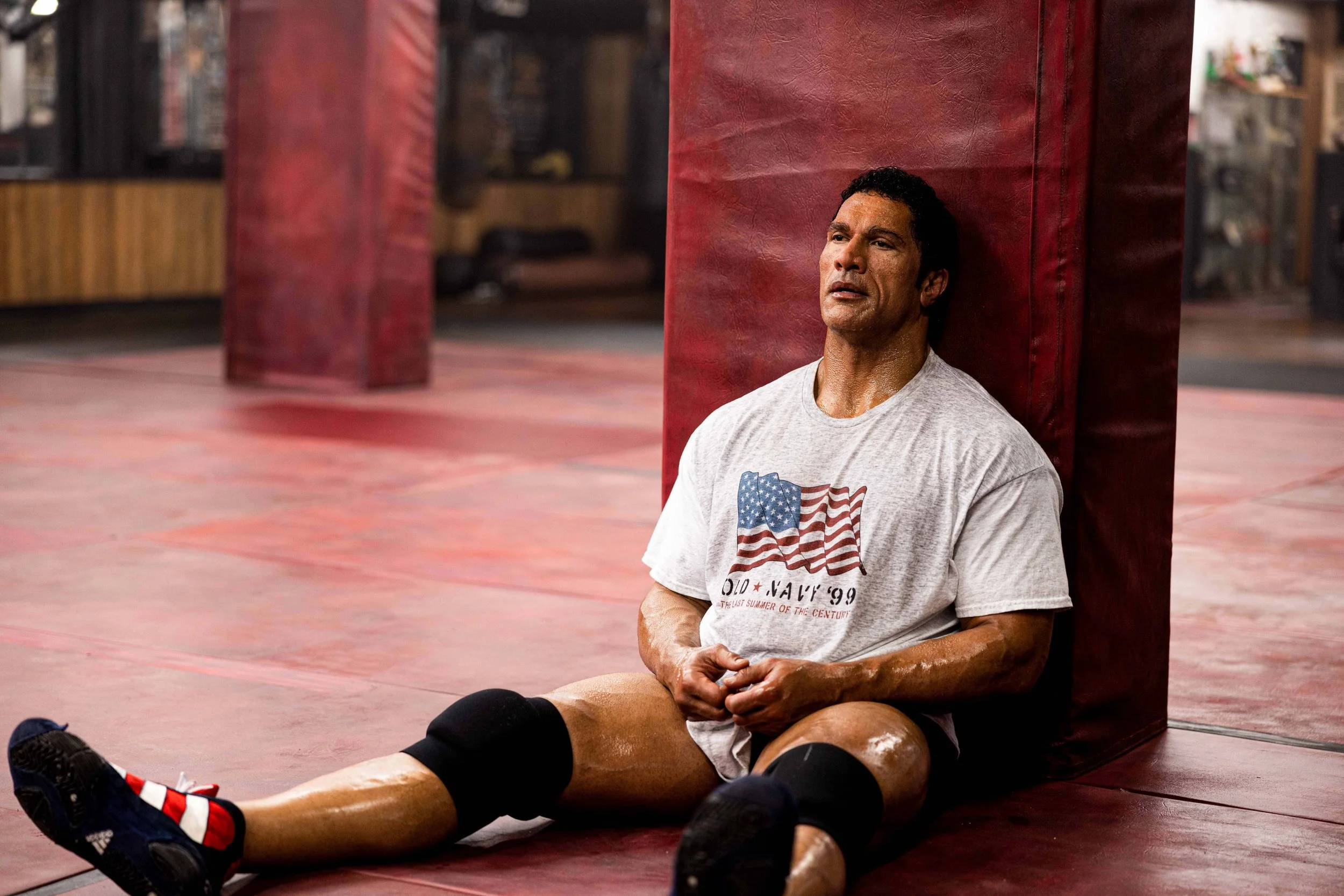‘The Smashing Machine’ Review: Dwayne Johnson’s Career-Best Performance
Dwayne Johnson in The Smashing Machine (A24)
Benny Safdie’s The Smashing Machine is a bruising, beautiful, and deeply human portrait of one man’s battle against himself as much as his opponents. At its core, it is a story about obsession, self-destruction, and the cost of greatness, told through the lens of Mark Kerr’s tumultuous rise and fall in the brutal world of mixed martial arts. What elevates this film beyond the boundaries of a standard sports biopic, however, are the astonishing performances at its center, most notably Dwayne Johnson, who delivers a career-best turn that is at once raw, vulnerable, and transformative. I never thought I would be saying this but yeah…The Rock himself might find himself in the Oscar nom category this upcoming season.
Johnson has long been known as a charismatic action star, capable of commanding blockbuster franchises with effortless charm. But in The Smashing Machine, he strips away the larger-than-life persona to reveal something startlingly intimate. His Mark Kerr is a man caught between the glory of the ring and the demons that haunt him outside it. The demon being a loss. Johnson’s physicality is, of course, undeniable, he inhabits the role with the force of an athlete whose body is both a weapon and a prison. Yet what truly astonished me is his emotional depth. The way he captures Kerr’s spiral into addiction, the quiet ache of loneliness, and the desperate hunger for love and validation proves that Johnson is capable of a vulnerability few might have expected. It is a performance that lingers long after the final frame, and it deserves to be spoken of among the year’s finest.
Standing beside him is Emily Blunt, who once again demonstrates why she is one of the most versatile and commanding actresses working today. As Dawn Staples, Kerr’s partner, Blunt imbues the film with a grounded humanity. Her character could have easily been relegated to the margins of a familiar “supportive partner” trope, but Blunt refuses to let that happen. Instead, she crafts a woman both fierce and fragile, someone whose love for Kerr is complicated by the destructive orbit of his choices. Not only is the chemistry between Blunt and Johnson great, but it is also deeply tragic. Their scenes together pulse with tenderness and volatility, capturing the messy reality of a relationship tested by addiction, fame, and the unrelenting grind of professional sports.
Safdie’s direction is unflinching yet compassionate. Known for his work on Uncut Gems and Good Time, Safdie brings his signature intensity to the world of MMA, immersing viewers in the chaos and immediacy of the fights. The camera rarely offers the audience the comfort of distance; instead, it thrusts us into the ring, where every blow is felt viscerally. Yet Safdie is equally adept at slowing down the pace, allowing moments of silence and stillness to convey just as much weight as the violence. He refuses to sensationalize Kerr’s pain, choosing instead to show the cyclical, exhausting nature of his struggles. This balance makes The Smashing Machine as emotionally gripping as it is physically intense.
The film also succeeds in transcending the sports biopic mold by refusing easy redemption arcs. Kerr’s story is not about a triumphant comeback or neatly tied resolutions, it is about the price of ambition and the fragility of the human spirit. The script paints Kerr as neither hero nor villain, but as a man consumed by forces both internal and external. In doing so, it avoids the clichés that often plague the genre, replacing them with something far more compelling: truth.
Visually, the film is remarkable. The gritty, sweat-soaked textures of the MMA world contrast sharply with the moments of quiet domestic life Kerr tries to preserve. The fight sequences are choreographed and shot with authenticity, capturing both the physical toll and the psychological intensity of combat. But I would argue that the film’s most powerful images often come away from the spotlight, the quiet devastation of Kerr alone in a hotel room, or the pained look on Dawn’s face as she watches the man she loves crumble before her. These details create an atmosphere that is both epic and intimate, reinforcing the central tension of a man celebrated publicly while deteriorating privately.
Ultimately, The Smashing Machine is extraordinary not because it chronicles victory, but because it dares to explore defeat. It is a story about the fragility of identity when built solely on external achievement, and about the destructive cycles that haunt those who push their bodies and minds beyond their limits. With powerhouse performances from Johnson and Blunt, and Benny Safdie’s uncompromising vision, the film is not just a sports drama—it is a haunting character study that will resonate with anyone who has ever chased a dream at great personal cost.
See it on the biggest screen you can, not just for the fights, which only make up a small portion of the film, but for the intimacy of its heartbreak. The Smashing Machine is powerful, gripping, and unforgettable.
RATING:
4.5/5

